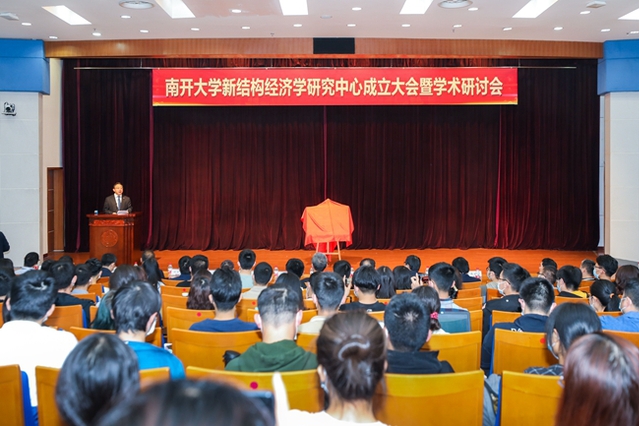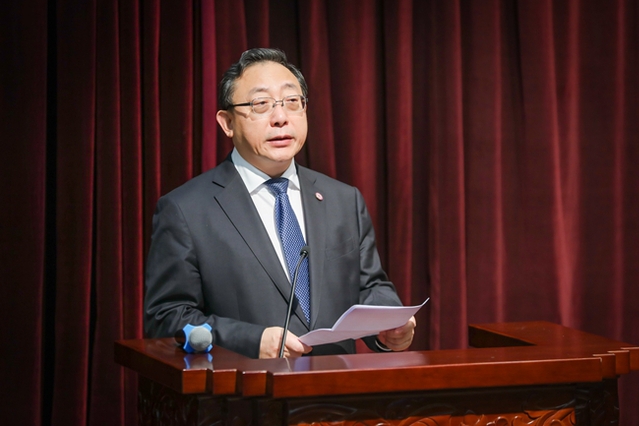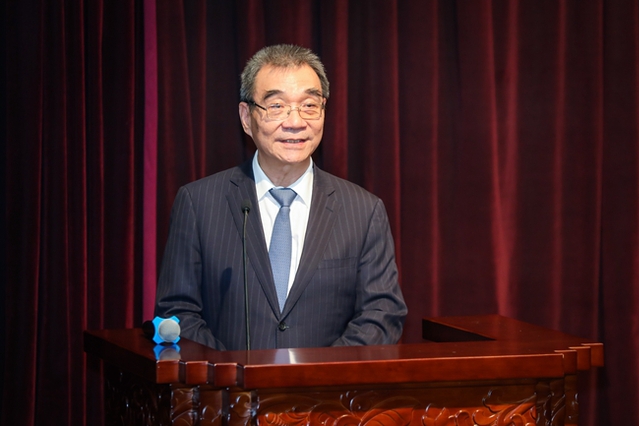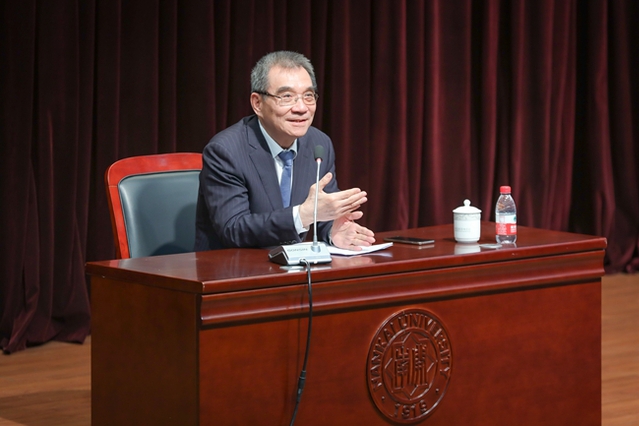Inauguration of the Center for New Structural Economics Research at Nankai University

On May 9, the inauguration ceremony of the Center for New Structural Economics Research at Nankai University (hereinafter referred to as the center) was held in the Shiing-Shen Building of Nankai University. The center was jointly founded by the School of Economics of Nankai University and the Institute of New Structural Economics at Peking University. It aims to promote theoretical innovation and further development of modern economics in China by strengthening cooperation and exchanges with domestic first-class universities and enhancing scientific research and talent training in economics.

At the ceremony, Cao Xuetao, President of Nankai University, and Lin Yifu, Dean of the Institute of New Structural Economics at Peking University, jointly inaugurated the center.

Cao Xuetao believes that the Center for New Structural Economics Research at Nankai University will better serve national development strategies and will make more contributions in building a modern socialist country in all respect.

Lin Yifu warmly congratulated Nankai University for the new opening. It is believed that the center as a platform will make new contributions Nankai University’s endeavor to create world-class courses and build a higher education institution at a world-class level.
At the Public Power Forum (Gongneng Jiangtan) of Nankai University, after the inauguration ceremony, Lin Yifu delivered a keynote speech on Profound Changes Unseen in a Century and Theoretical Innovation of New Structural Economics.

Lin Yifu pointed out that new structural economics was born out of the explanation and guidance for the transformation and upgrading of developing countries. It overcomes the problems encountered by the existing mainstream economics and presents the development economics of the new era. He encouraged the students to seize the opportunities brought about by China's reform and opening up and brace themselves for the challenges that follow.
A seminar for the sub-forum was also held on the same day. Experts and scholars from Peking University, Nankai University, Beijing Normal University, Sun Yat-sen University, Jilin University, Shandong University, Minzu University of China and others conducted in-depth discussions and exchanges on topics such as government and industrial policies, digital technology, inclusiveness and income distribution, development strategies business investment and targeted poverty alleviation.
(Reported by Jingqiu Hao, photographed by Qiqi Zong, translated by Qianqian Zhao, edited by Davide Francolino and JianjingYun)









